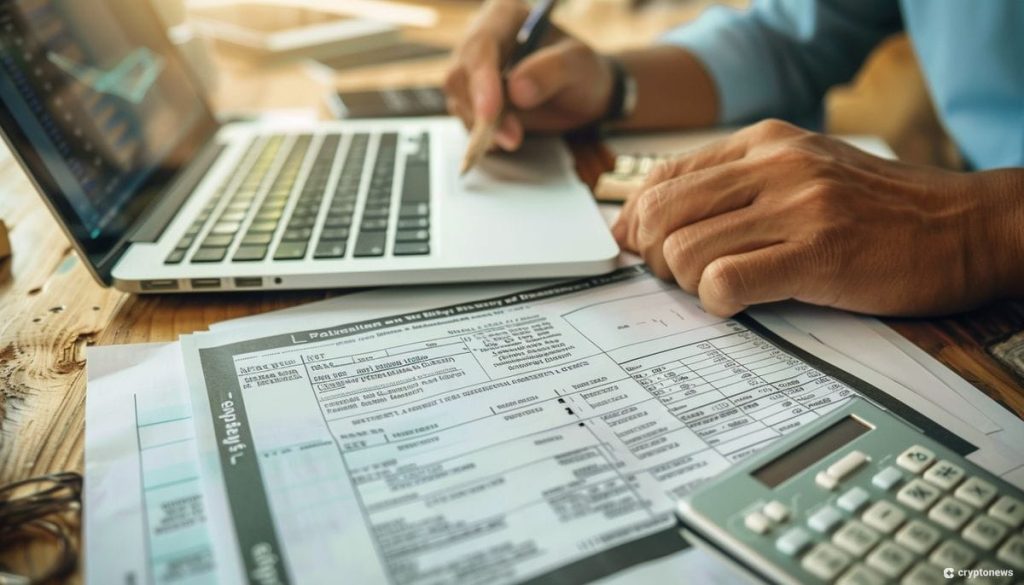The United States Internal Revenue Service (IRS) has released a draft of Form 1099-DA for reporting income derived from digital asset transactions, which is expected to be implemented in 2025 for reporting purposes in 2026. Brokers such as kiosk operators, digital asset payment processors, hosted wallet providers, and unhosted wallet providers will be responsible for preparing Form 1099-DA for customers engaged in selling or exchanging digital assets. The form will include token codes, wallet addresses, and blockchain transaction locations, and copies will be sent to both customers and the IRS to verify reported information. The rule aims to enhance the IRS’s ability to identify taxpayers involved in digital asset transactions, which are challenging to detect without third-party reporting.
Upon the announcement of the new reporting requirements, the crypto community expressed mixed reactions. The Blockchain Association criticized the rule for its lack of understanding of digital assets and decentralized technology. Similarly, Coinbase’s chief legal officer, Paul Grewal, warned of potential financial surveillance concerns as nearly all digital asset transactions, even minor ones like purchasing a cup of coffee, would need to be reported. Tax experts, including Ledgible, have raised concerns about the challenges of reporting decentralized finance transactions where intermediaries may not exist to fulfill reporting requirements. Brokers will also face an increased administrative burden as they process a large volume of transactions, requiring accurate determination of cost basis for digital asset transfers.
Taxpayers who previously underreported their crypto income may face scrutiny when reporting taxes in 2025. While users of foreign exchanges that do not formally serve U.S. citizens may not submit the form, the IRS can potentially detect offshore activity if assets are subsequently transferred to a U.S. exchange. The draft form is open for public comments, allowing stakeholders to provide feedback and suggestions before finalization. In addition to the United States, other countries around the world are also recognizing the need to tax cryptocurrency holdings as the digital currency market expands. Brazil, for instance, has imposed a tax of up to 15% on profits from cryptocurrencies held overseas by Brazilian nationals, while India enforces stiff taxes on crypto transactions with a 30% tax on profits and a 1% Tax Deducted at Source (TDS) on all transactions. Furthermore, the UK national taxing authority has asked crypto users to disclose any unpaid taxes to avoid fines.
In conclusion, the IRS’s release of Form 1099-DA aims to improve reporting and tracking of digital asset transactions in the United States. The draft form includes requirements for brokers to report customer transactions involving digital assets, with the goal of enhancing the IRS’s ability to identify taxpayers in this sector. While the new reporting requirements have sparked concerns from the crypto community and tax experts, stakeholders have the opportunity to provide feedback before the form is finalized. Countries worldwide are also recognizing the need to tax cryptocurrency holdings as the digital currency market expands, with various taxation approaches being implemented to regulate profits from digital asset transactions. As the digital asset market continues to evolve, regulatory bodies are taking steps to ensure compliance and transparency in this rapidly growing sector.


